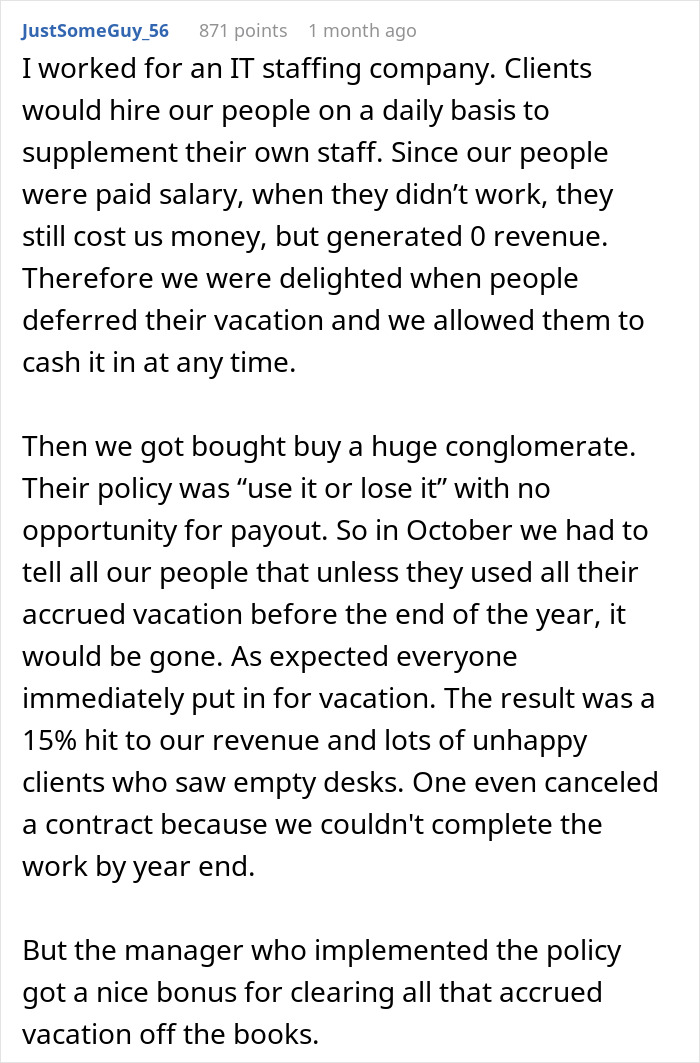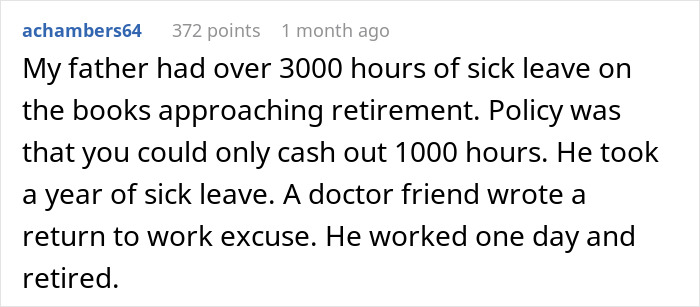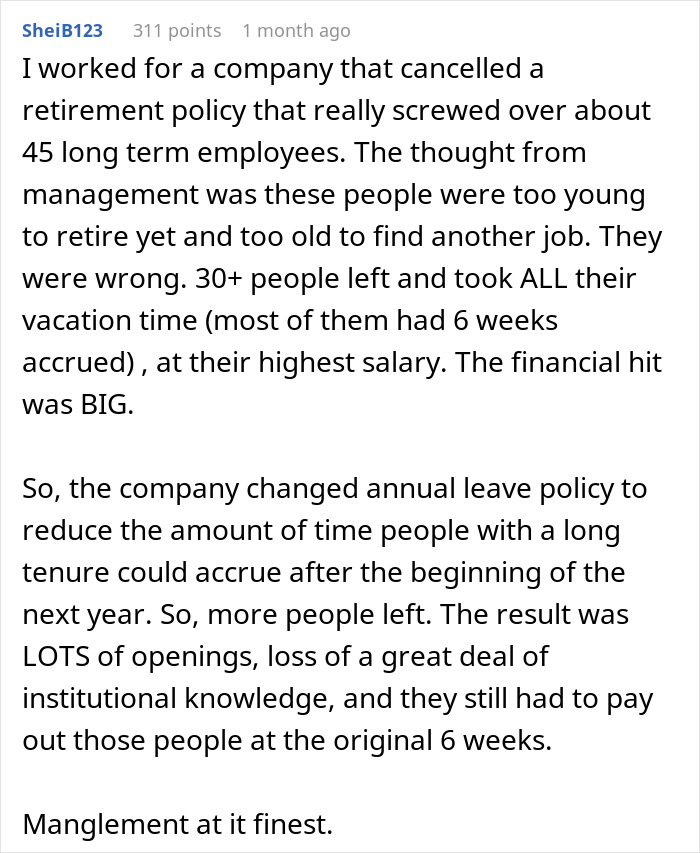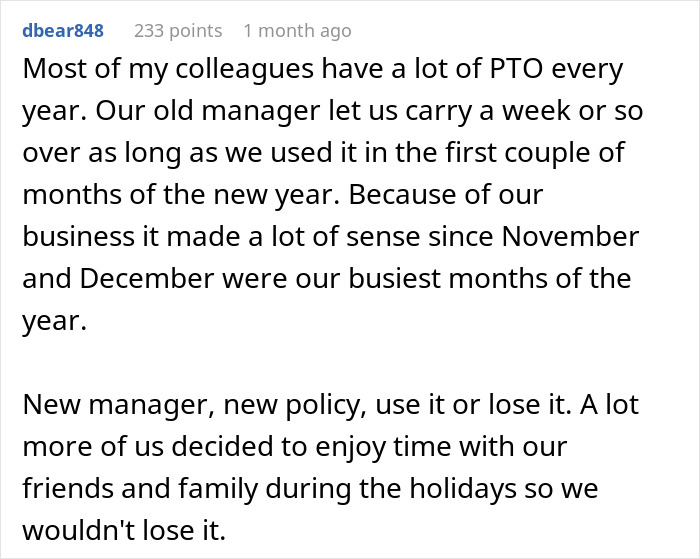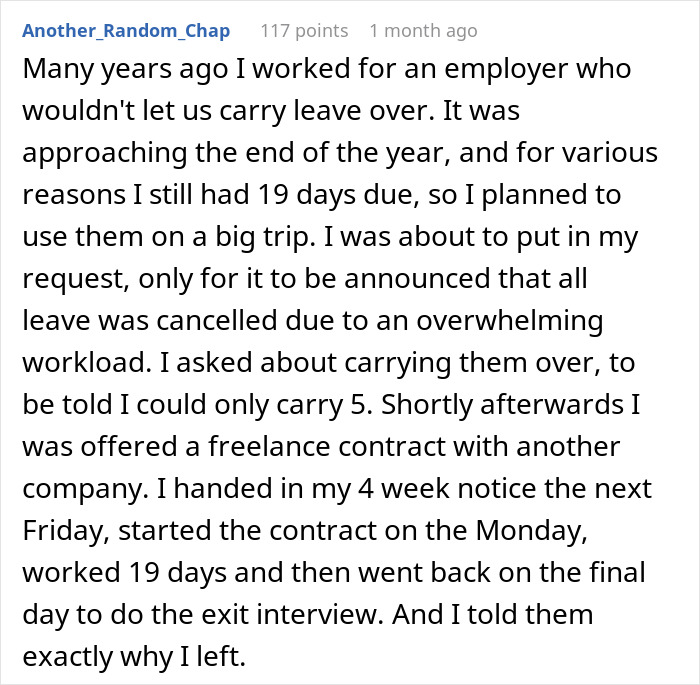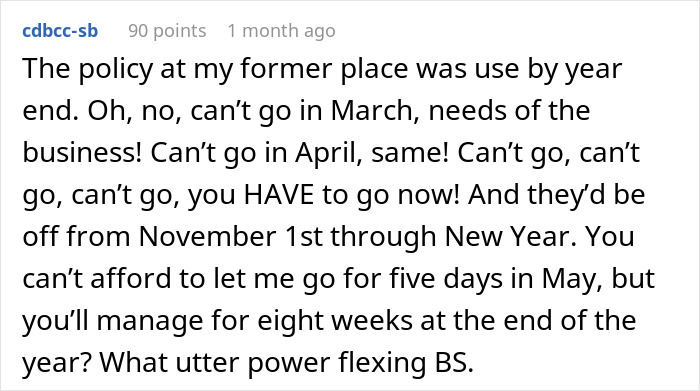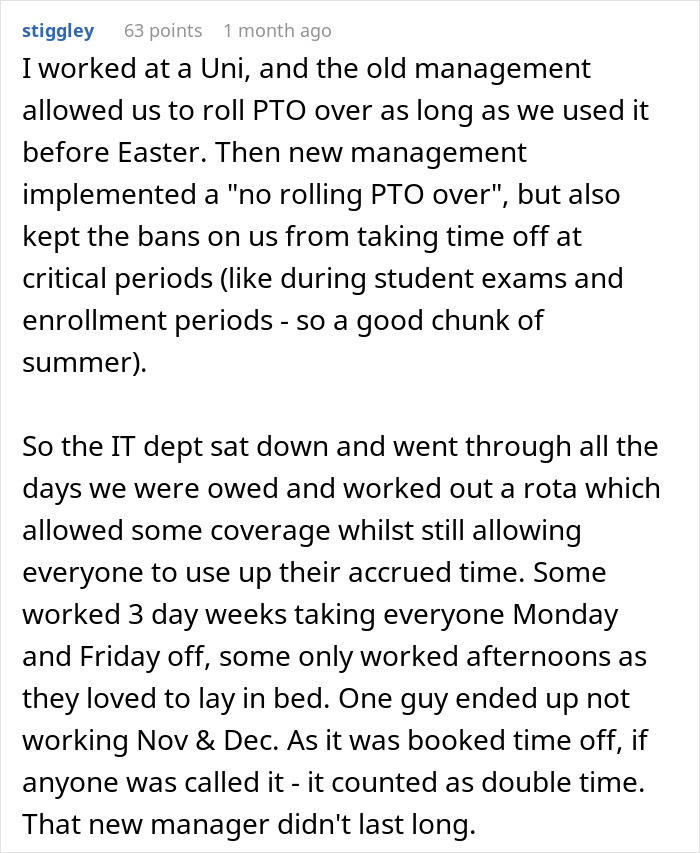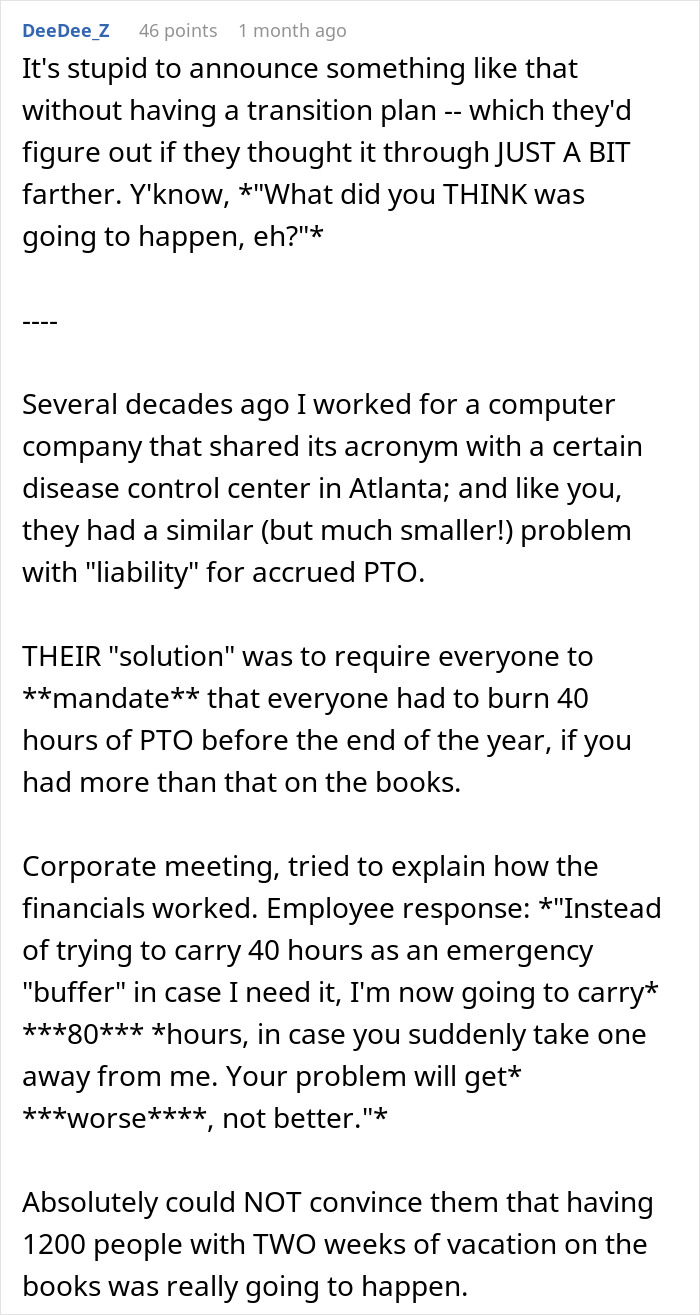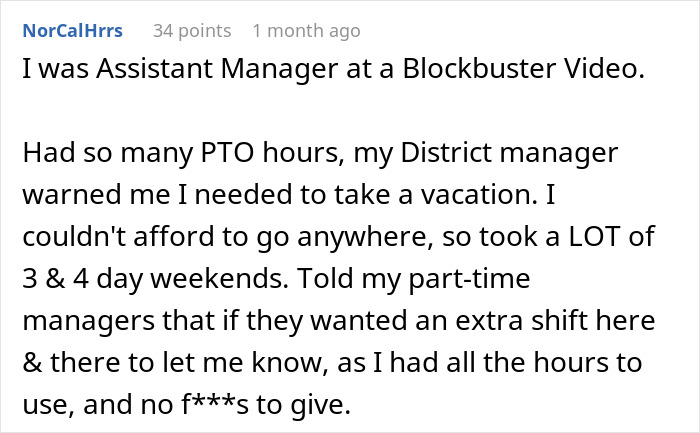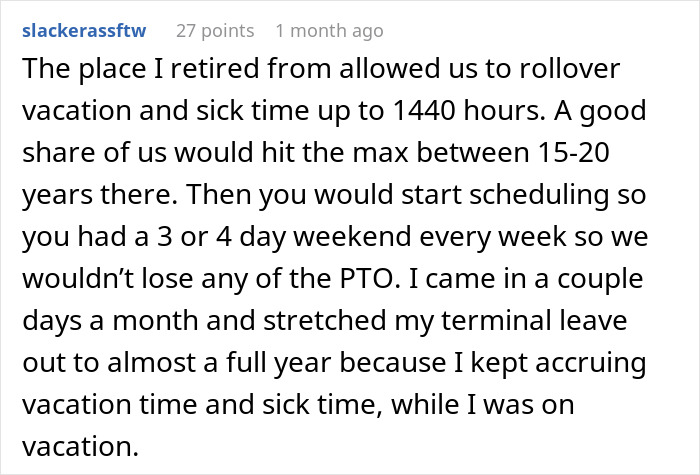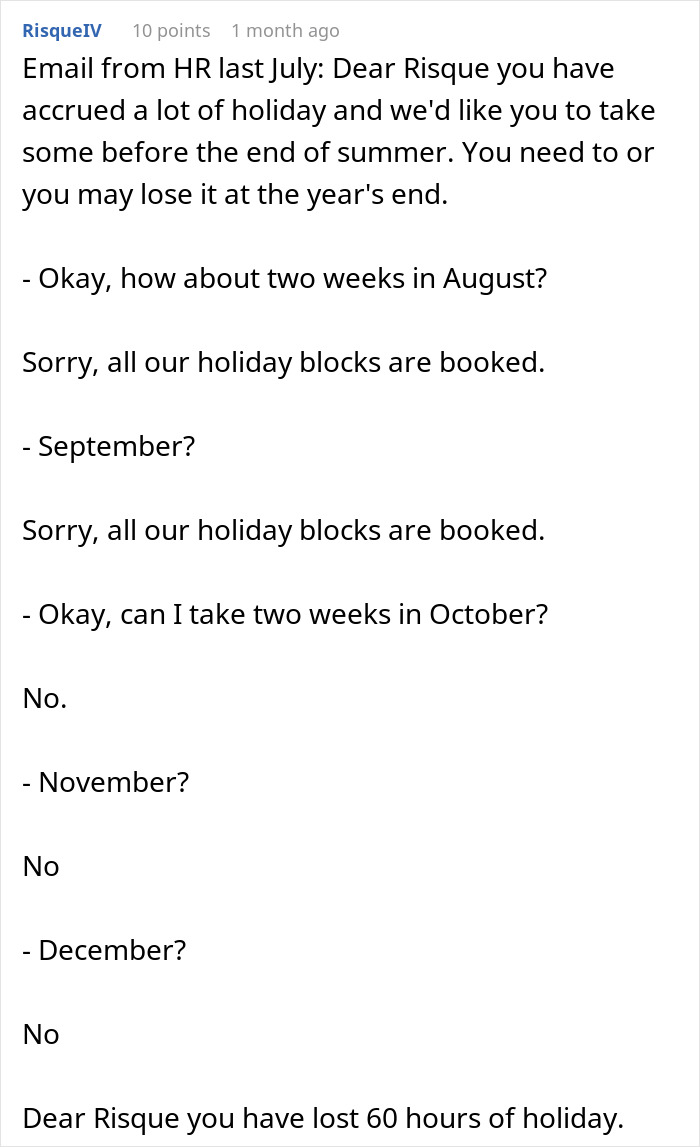Many of you probably know just how vital it is for your boss to be empathetic. When someone in upper management genuinely cares about their employees and supports them, they return that respect by working hard and showing loyalty to the company.
Unfortunately, some managers only look at the bottom line, without considering how policy changes affect the actual staff. Redditor u/kiltedturtle regaled the r/MaliciousCompliance community with a story about how their colleagues pushed back against a decision to ban vacation day rollovers to the next year. It’s proof that you don’t ever want to alienate your most talented workers. Check out the full story below! Bored Panda reached out to the author for further comment.
If a company suddenly decides to get rid of some social benefits, management shouldn’t be surprised to see top talents leaving

Image credits: cottonbro studio (not the actual photo)
A person shared how their coworkers rebelled after they heard about the changes to the vacation time carry over policy

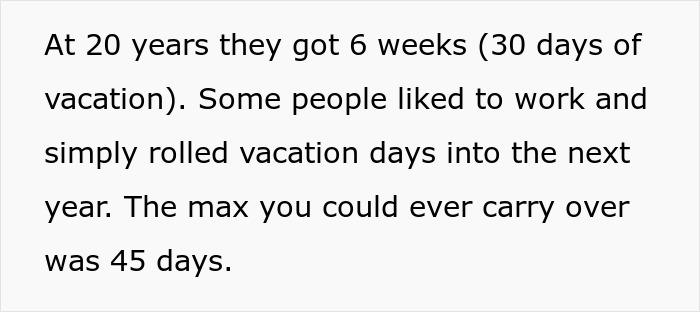

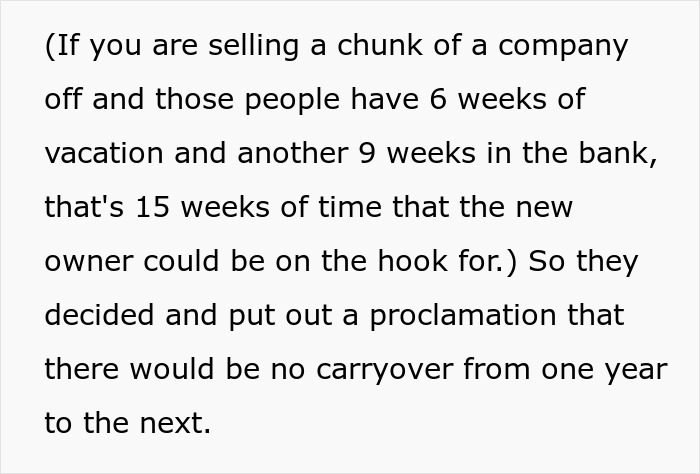

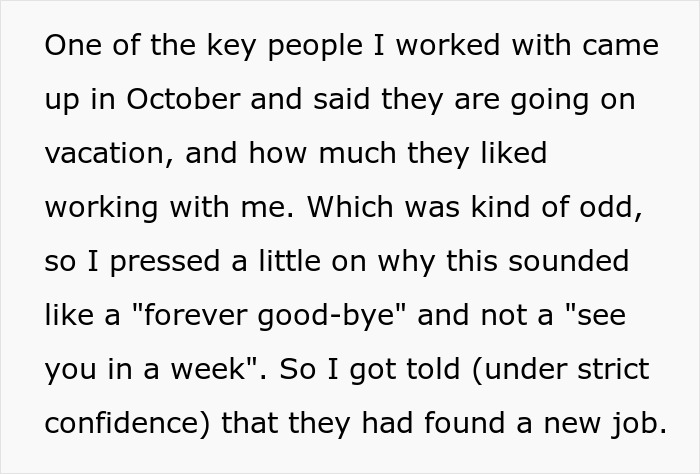
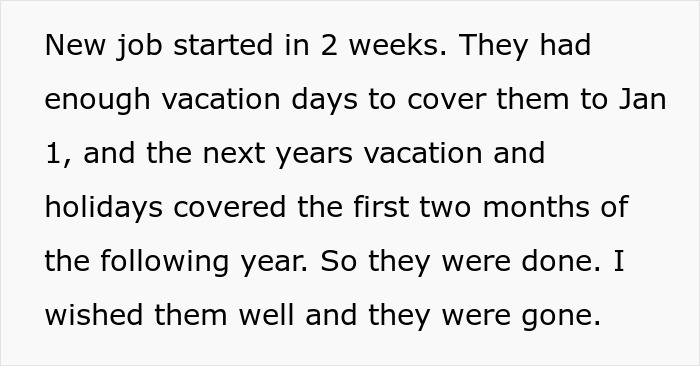
Image credits: cottonbro studio (not the actual photo)
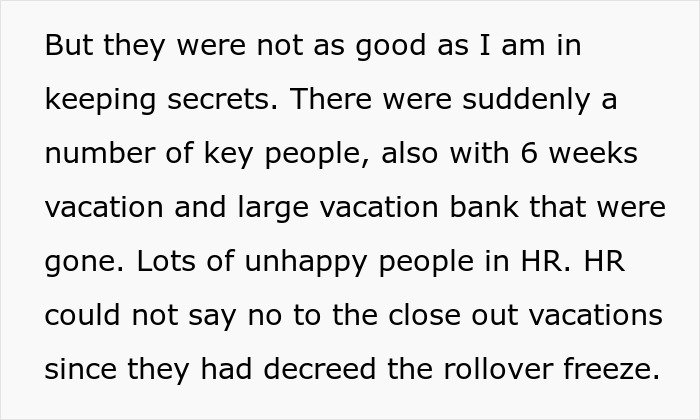

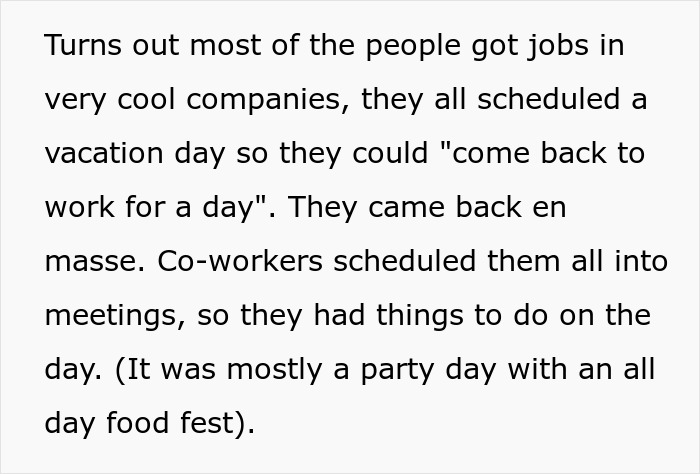

Image source: kiltedturtle
Different countries and companies have different rules regarding rolling over vacation days to the new year
In the United Kingdom, employees had the right to carry over up to four weeks of unused annual leave from year to year, since 1998.
However, from 2024, workers can carry over up to 20 days of untaken leave, provided that they used them within 18 months after the rollover. Meanwhile, companies operating in the UK can allow their staff to carry over more than the statutory minimum. This information has to be clearly outlined in the employment contract or the company policy.
Meanwhile, across the Atlantic, in the United States, full-time and part-time employees can carry over up to 30 days (240 hours if you work in the US, 360 hours if you work outside the country) of annual leave into the new year.
Any vacation time not carried over is lost, forever, as per the Office of Human Resources Management with the US Government. So, there’s a very clear incentive to use what you have.
However, as ‘Money’ reports, in 2023, a whopping 62% of American workers didn’t use all of their vacation time. A survey conducted by fintech lending firm ‘Sorbet’ found that around a third of people’s time off ended up being wasted. 5.5% of workers didn’t take any time off that year.
Employees have very individualistic approaches to how they use their time off. Some go on holiday often, while others prefer to save their days
A lot of employees enjoy having extra freedom and flexibility. Especially when it comes to their vacations.
If you take that flexibility away, you’re essentially reducing the number of reasons why all of those skilled folks you employ should stay with you. Don’t be surprised if they decide to jump ship… whether partly out of spite or to get the best possible benefits package they can.
One person might like taking a few days off regularly to have a good work-life balance and avoid burnout. (Yay, longer weekends and mid-week breaks!) Someone else might prefer taking several weeks off all at once to completely disconnect from work, take long trips, focus on their passion projects, etc.
Meanwhile, there will usually be individuals who don’t take a lot of vacation days, instead preferring to bank them. They might not get as tired as their coworkers. However, even if you deeply enjoy what you do and find meaning in it, you’re still susceptible to burnout—remember that.
Depending on what country you work in and what your company’s policy is, you may have to take a certain number of days off every year. Meanwhile, you can’t save an unlimited number of vacation days either, over the years. Vacation days can have an ‘expiration date.’ If you know that you’ll lose some of your time off, you’re more likely to use it.
All of this is meant to encourage employees to actually rest and to prevent their bosses from overworking them. It also serves to protect companies from individuals who hoard all of their time off, quit, and then have to be reimbursed for all of their unused time off.
The author clarified a couple of details in the comments of the viral post
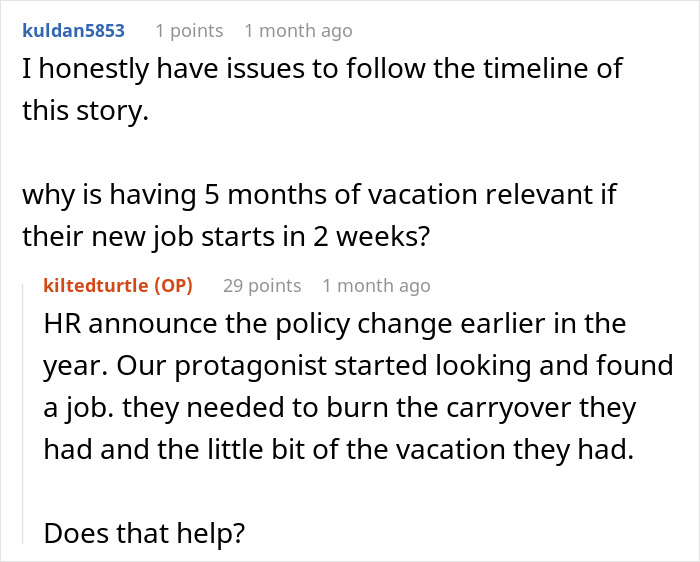
Many readers had a lot to say about saving vacation time. Here’s their perspective
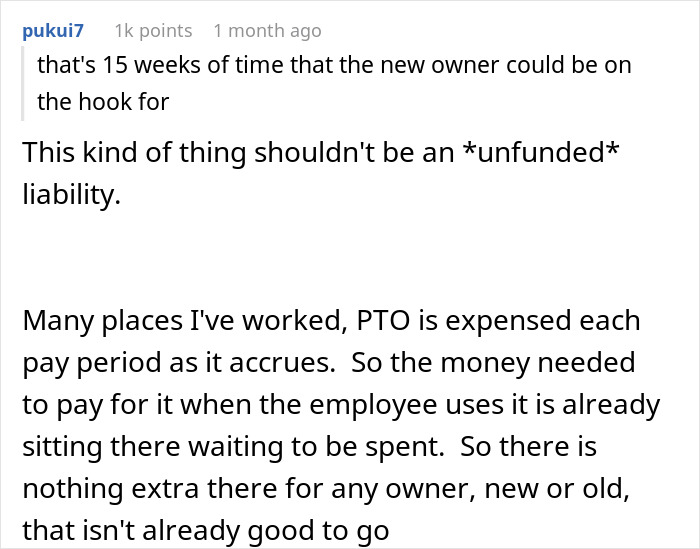

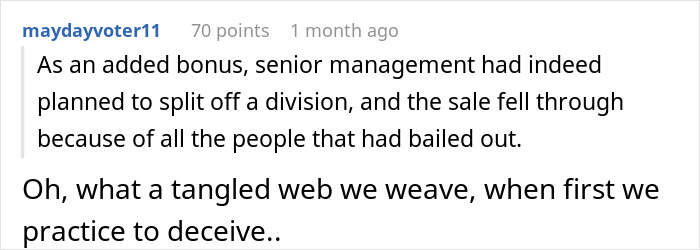
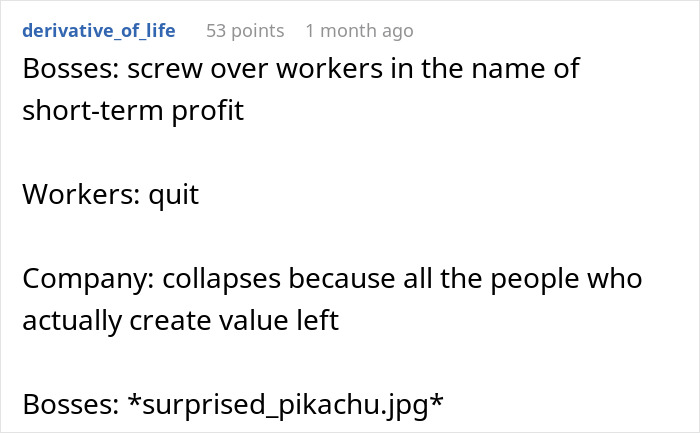
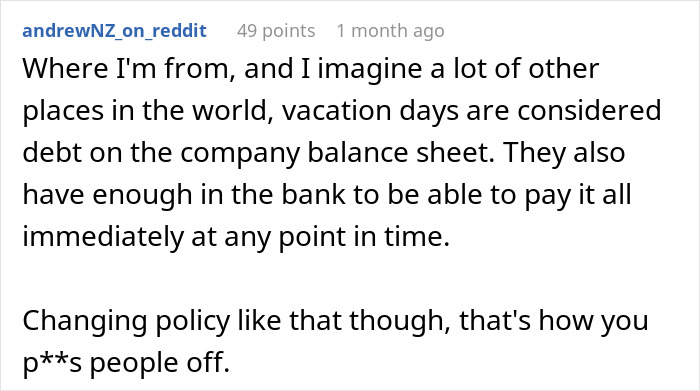
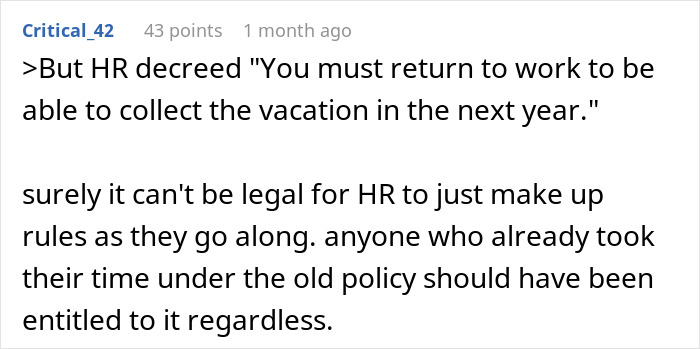
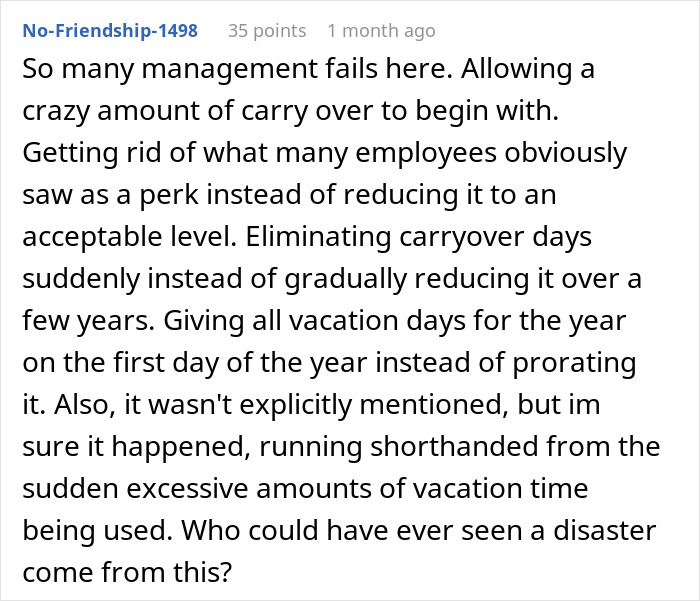




A few employees shared similar stories of their own about time off

